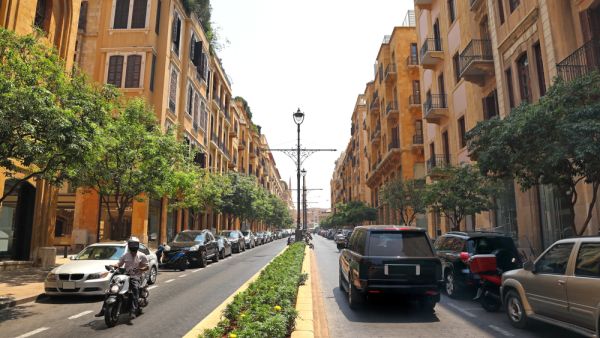Ghobeiri Municipality defended its decision to name a street in Beirut’s southern suburbs after Hezbollah military commander Mustafa Badreddine, one of the main suspects in former Prime Minister Rafik Hariri’s 2005 assassination, calling the move “legal.”
The municipality’s statement, released Monday night, came in response to comments by Future Movement’s caretaker Interior Minister Nouhad Machnouk where he denied approving a decision to name the street after Badreddine, who was indicted by the Special Tribunal for Lebanon and later killed in Syria, where he was the military commander of Hezbollah, in 2016.
Machnouk said the decision “threatens public order,” adding that his ministry “will send a letter to Ghobeiri Municipality tomorrow [Tuesday] asking for the removal of signs” bearing the street name.
Ghobeiri Municipality said the decision, issued by the municipal council on June 14, 2017, was sent to the ministry in August the same year, and had failed to get a response of either approval or refusal.
The statement also claimed the controversial decision was “legal and sound and lawful,” according to law 63 of the municipalities’ law, which “considers any decision authorized if the controlling authority does not take a decision on it within a month of [the decision’s] registration at the ministry.”
Photos of the newly erected sign drew angry comments from social media users, who criticized the timing of the decision's implementation – concurrent to the final STL hearing sessions being held in The Hague – and its proximity to the Rafik Hariri Hospital.
The STL is currently trying the other four indicted Hezbollah-affiliated suspects in absentia for the assassination, after dropping charges against Badreddine following the confirmation of his death.
This article has been adapted from its original source.








